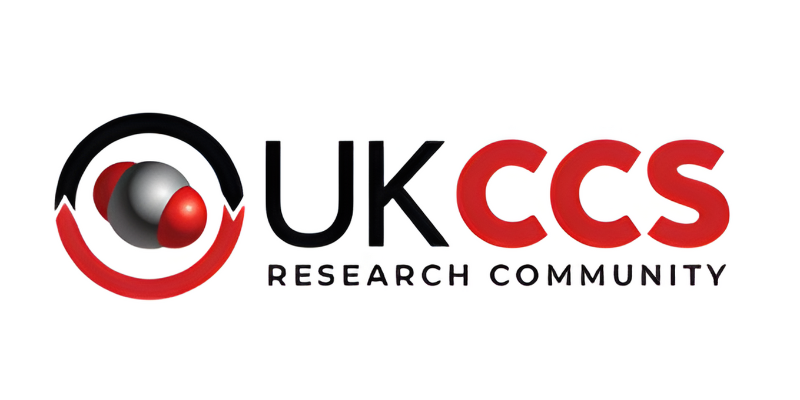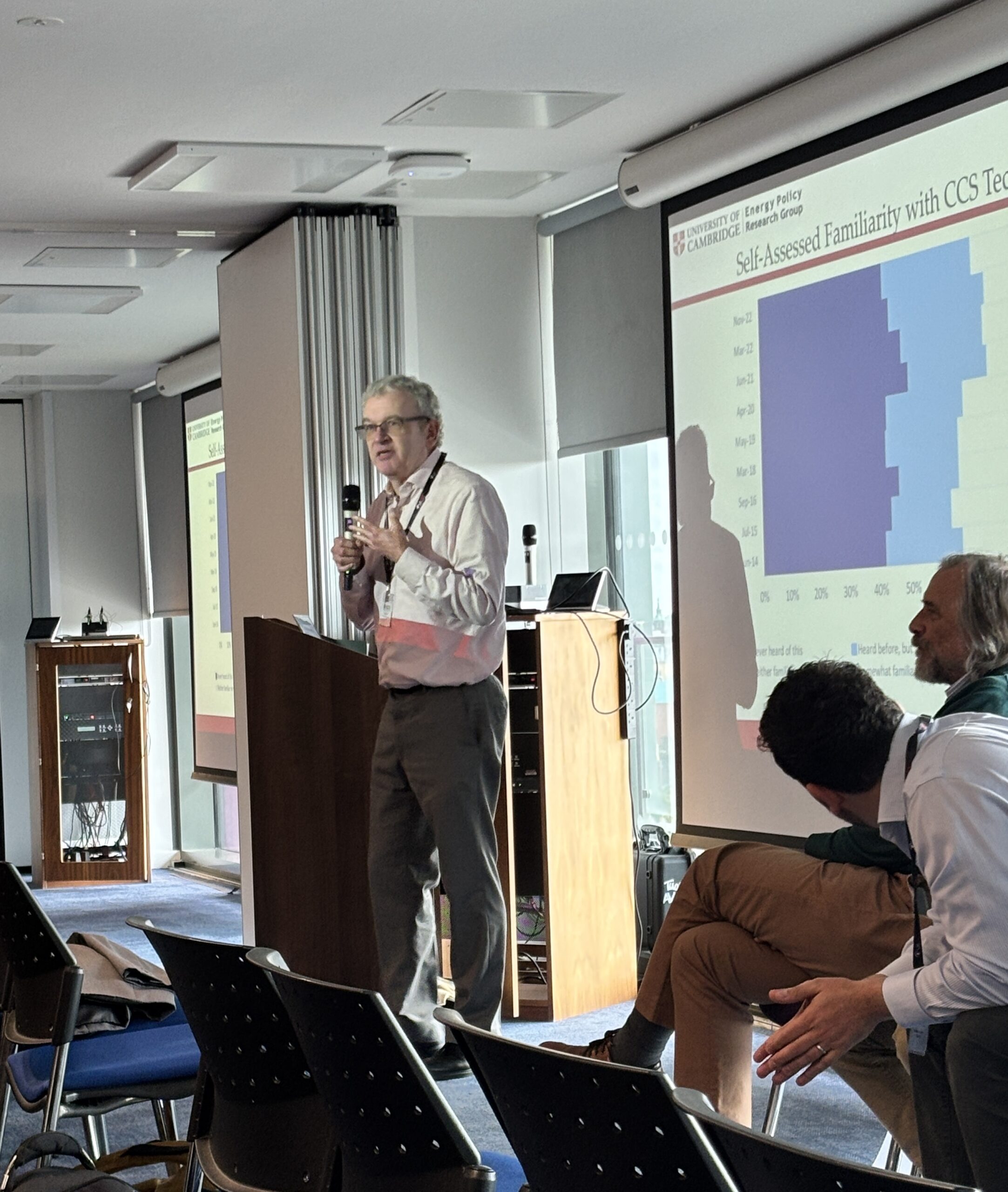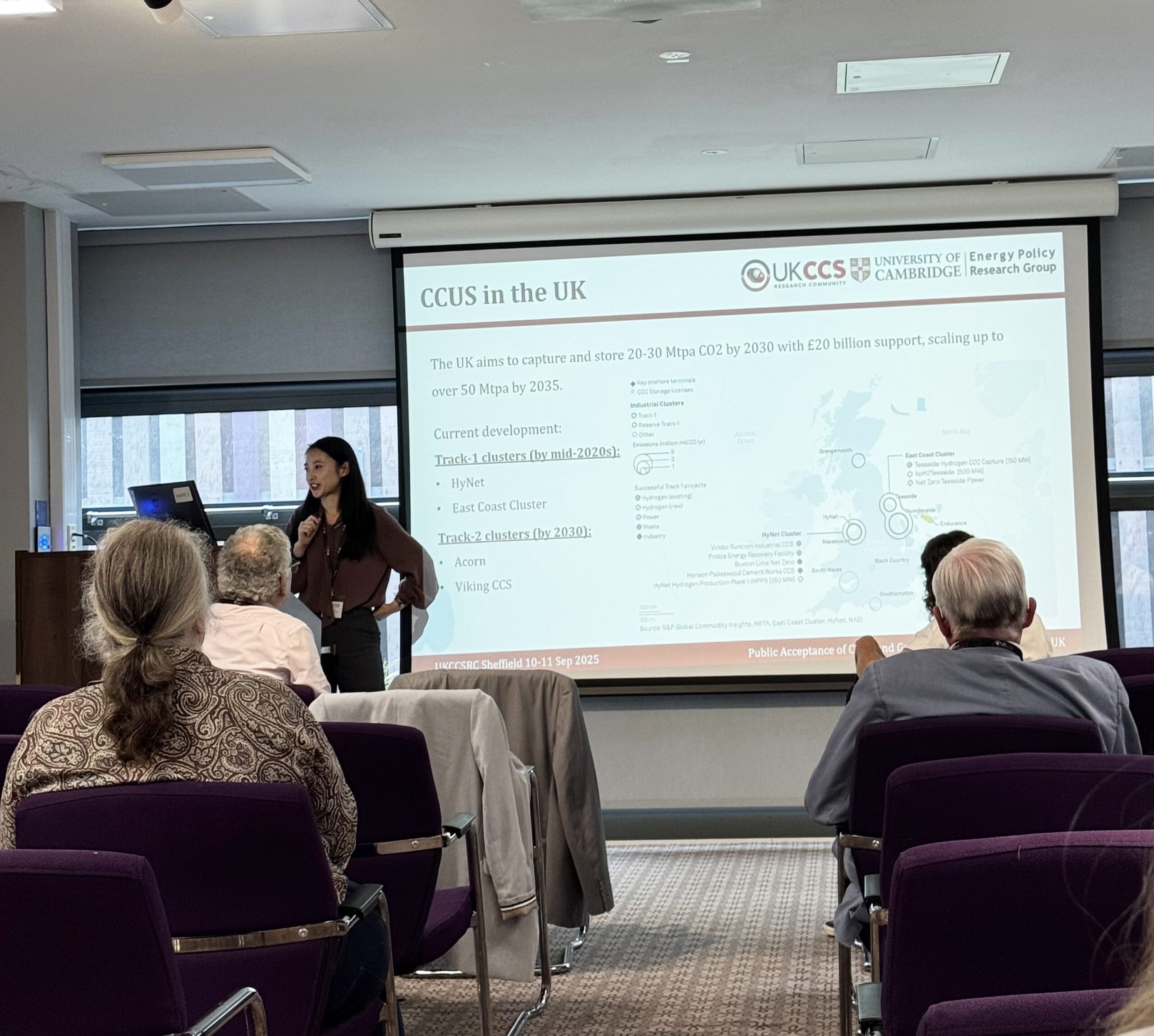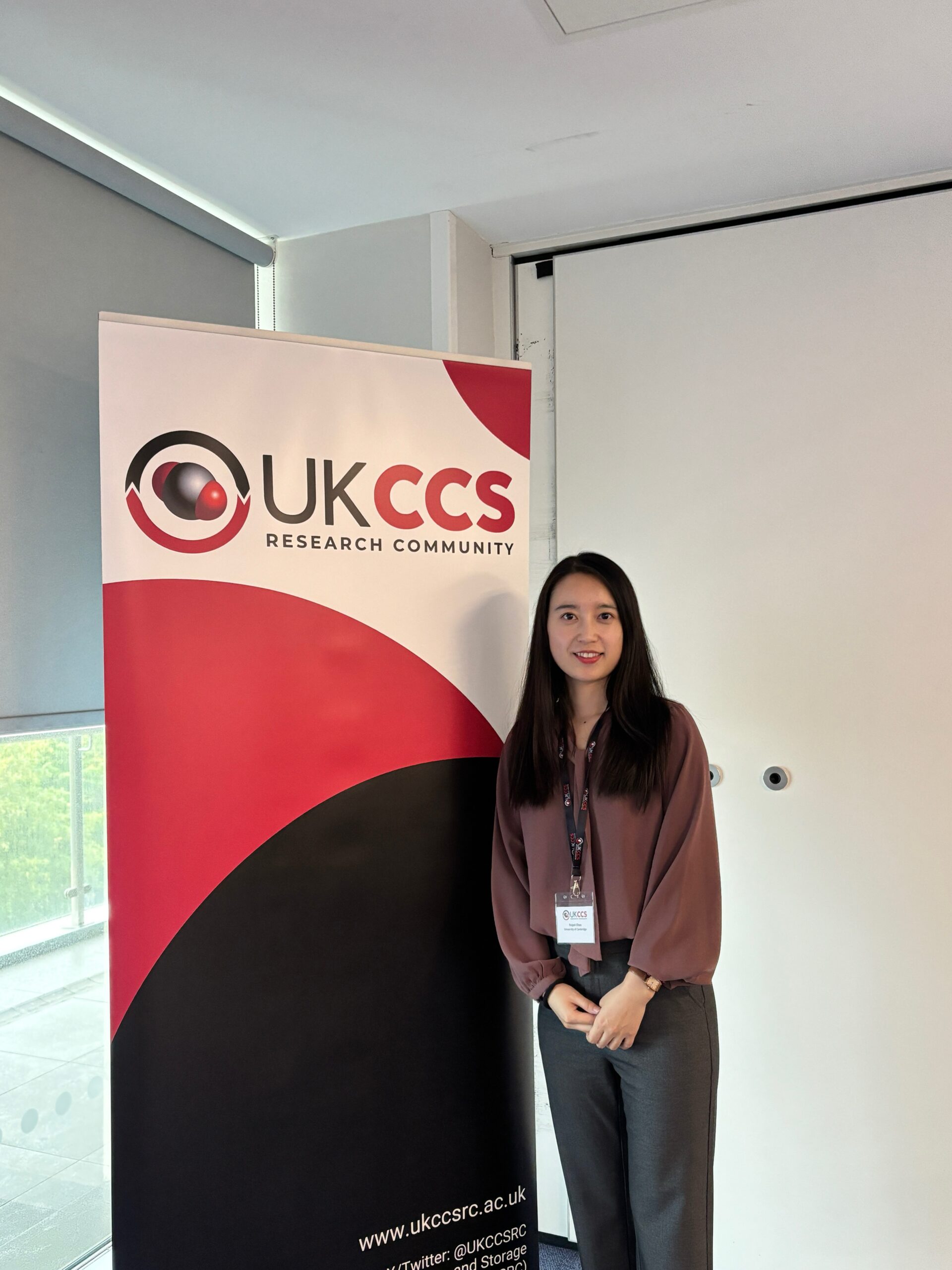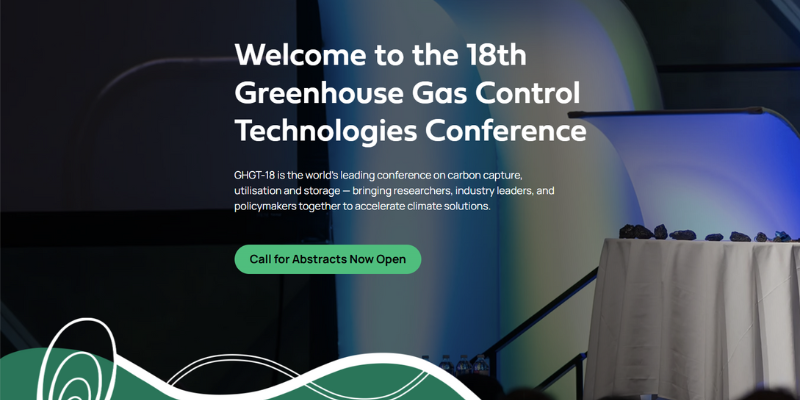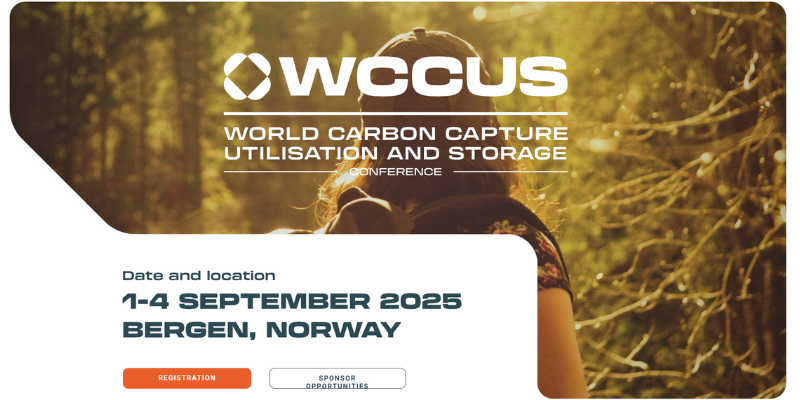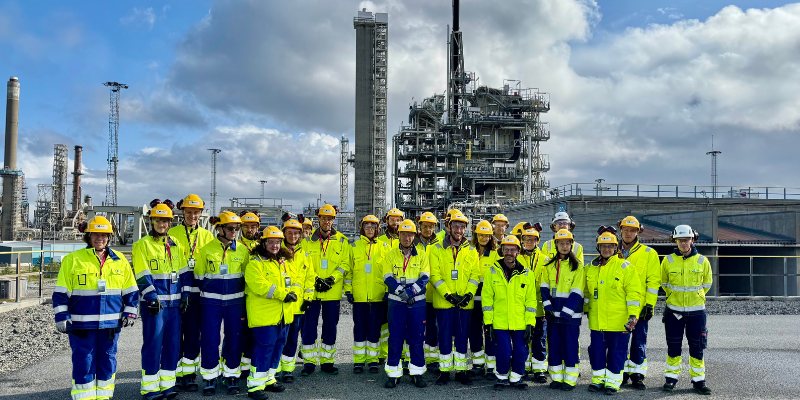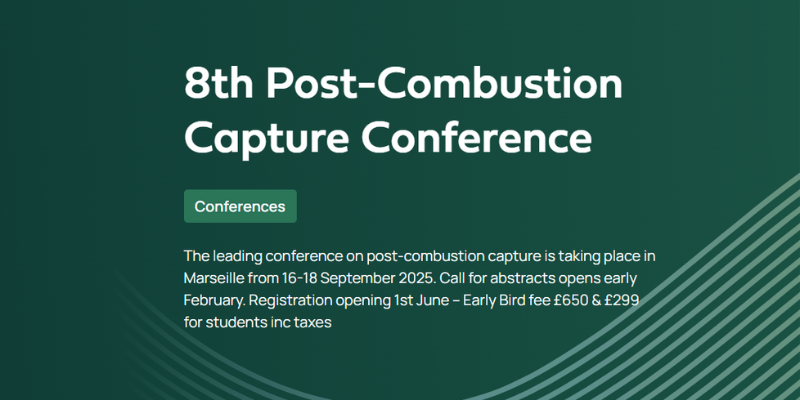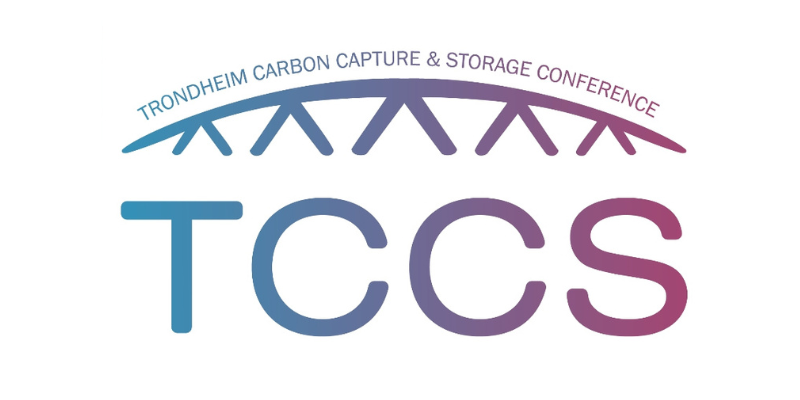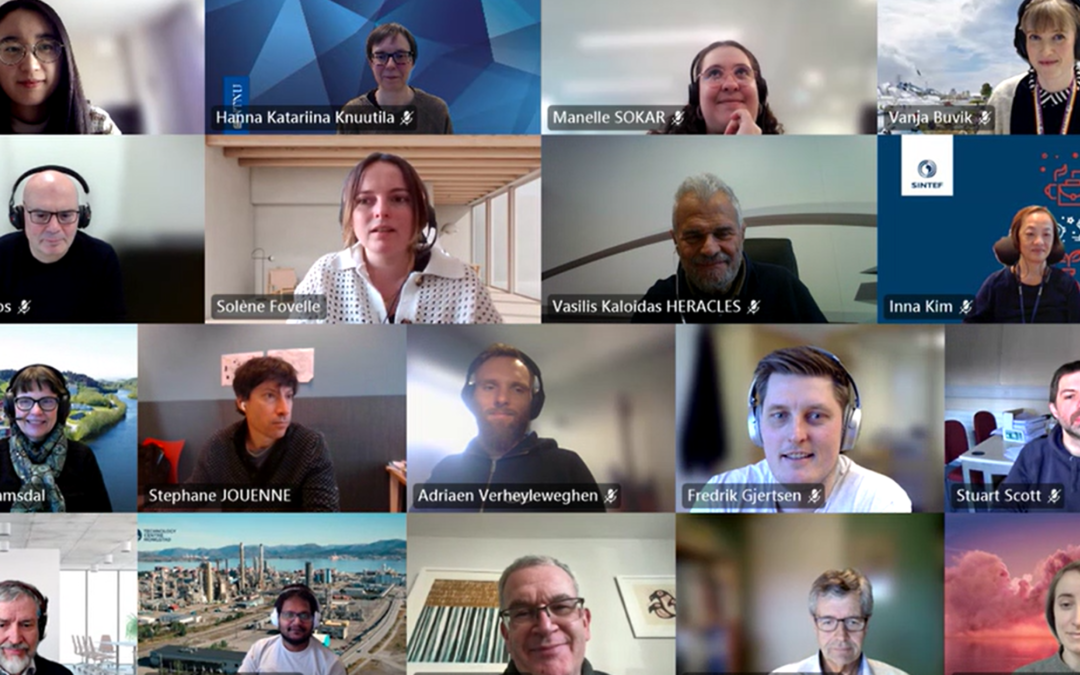Sheffield, UK – AURORA project partners from the University of Cambridge made a significant contribution to the UK Carbon Capture and Storage Research Centre (UKCCSRC) Knowledge Exchange Conference in Sheffield, presenting pioneering research on public acceptance of carbon capture, utilization and storage (CCUS) technologies and green industrial clusters.
Understanding Public Acceptance of CCUS
David Reiner and Peipei Chen delivered research that addresses a critical aspect of CCUS deployment: public acceptance. As the UK accelerates efforts to meet ambitious climate targets, understanding how communities perceive and engage with carbon capture technologies has become essential for successful implementation.
Their research reveals that public acceptance is far more complex than simple support or opposition, shaped by multiple interconnected factors including awareness, knowledge, and perceptions of risks and benefits.
Key Research Findings
- Acceptance is not preference: One of the most significant insights is that while surveys show broad public support for CCUS as a climate solution in principle, this does not automatically translate into support for specific implementations. Public attitudes vary considerably based on technology type, industry application, and geographic siting.
- Communication and Framing Matter: The research emphasizes that support for industrial clusters as economic development initiatives does not automatically mean support for decarbonizing those clusters through CCUS. This distinction highlights the need for clear, transparent communication that addresses specific concerns about CCUS technologies separately from general industrial development.
- Visual Impact and Local Engagement: The research found that visual and aesthetic impact of CCUS infrastructure significantly influences community attitudes. Successful deployment requires early and continuous consultation, inclusive dialogue, thoughtful design, and transparent information about project benefits and risks.
Research Methodology
The Cambridge team employed multiple approaches including large-scale surveys, focus groups, citizen dialogues, and visual perception studies to build comprehensive understanding of public attitudes across different UK regions and demographics.
Implications for UK CCUS Deployment
As the UK works toward capturing 20-30 million tonnes of CO2 annually by 2030 and achieving net-zero by 2050, these insights become increasingly critical. The findings emphasize the need for:
- Differentiated engagement strategies tailored to specific technologies, industries, and locations
- Long-term commitment to building and maintaining social license
- Just transition frameworks that consider community impacts and benefits
- Evidence-based communication addressing actual public concerns
Building Legitimacy for Climate Action
The presentation underscores a fundamental principle: technological readiness alone is insufficient for successful CCUS deployment. Building legitimacy through genuine public engagement, transparent communication, and responsive project development is essential for CCUS to play its intended role in the UK’s decarbonization strategy.
As the research demonstrates, public acceptance should not be viewed merely as a barrier to overcome but as an opportunity to develop better, more socially responsive approaches to climate action. Communities have valuable insights about local contexts, priorities, and concerns that can strengthen project design and implementation.
AURORA’s Integrated Approach
This research exemplifies AURORA’s commitment to addressing both technical and social dimensions of CCUS deployment. While much of AURORA’s work focuses on advancing CESAR1 solvent technology, understanding public acceptance is equally vital for successful real-world implementation. By supporting research into stakeholder engagement and communication strategies, AURORA ensures that technological innovations are developed alongside the social license needed for deployment.
The insights presented at UKCCSRC will inform AURORA’s ongoing work and contribute to broader discussions about CCUS deployment across Europe, ensuring that innovation serves not only environmental goals but also the communities it aims to benefit.
About the AURORA Project
The AURORA project is a pioneering initiative aimed at revolutionising the cement industry’s approach to sustainability. By leveraging cutting-edge technologies and innovative methodologies, the project strives to significantly reduce the carbon footprint associated with cement production. SINTEF, one of Europe’s largest independent research organisations, leads the project, bringing together a consortium of experts and stakeholders from across the industry.
Don’t miss the GHGT‑18 | The World’s Leading CCUS Conference
The AURORA project is proud to announce its participation in the upcoming 18th Greenhouse Gas Control Technologies Conference (GHGT‑18), taking place…
Fourth Stakeholder Forum for the AURORA Project
AURORA\'s fourth Stakeholder Forum (StF) was held on September, the 10th February 2025 (14-16 CET). Our StF serves to guide…
Presenting at World CCUS Conference 2025 in Bergen, Norway
We are proud to announce that Peipei Chen from the University of Cambridge (UCAM) successfully presented cutting-edge research on European…
🤝 AURORA Holds Its 5th Project Meeting in Bergen and Mongstad
On June 23–24, 2025, the AURORA consortium gathered for its 5th project meeting, bringing together partners from across Europe to…
Don’t miss the 8th Post-Combustion Capture Conference | September 16th-18th 2025 in Marseille (France)
The AURORA consortium is pleased to announce its participation in the 8th Post-Combustion Capture Conference (PCCC-8), set to take place…
Join us at the 13th Trondheim CCS Conference (TCCS-13) | June 16th-19th 2025 in Trondheim (Norway)
We are thrilled to announce that the AURORA project, coordinated by SINTEF, will actively participate in the upcoming 13th Trondheim…
Getting ready for our 3rd online Stakeholder Forum (StF)!
AURORA is preparing its third Stakeholder Forum (StF) to be held online on February, the 13th February 2025 (14-16 CET).…
AURORA 3rd General Assembly online
The AURORA project partners recently had their third General Assembly online, to assess progress and outline plans for the next…
Throwback on the GHGT-17 – Greenhouse Gas Control Technologies conference in Calgary, Canada
From October 20th to 24th, 2024, the AURORA project partners participated in the 17th International Conference on Greenhouse Gas Control…
Join us at the European Cement Decarbonisation Summit 2024 | Oct. 30th – 31st in Hamburg (Germany)
We are excited to announce that the AURORA project, coordinated by SINTEF, will be prominently featured at the upcoming European…

